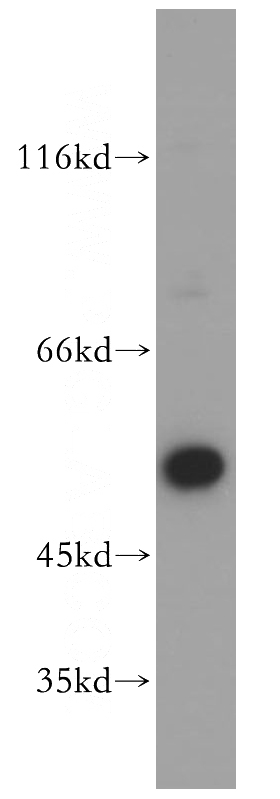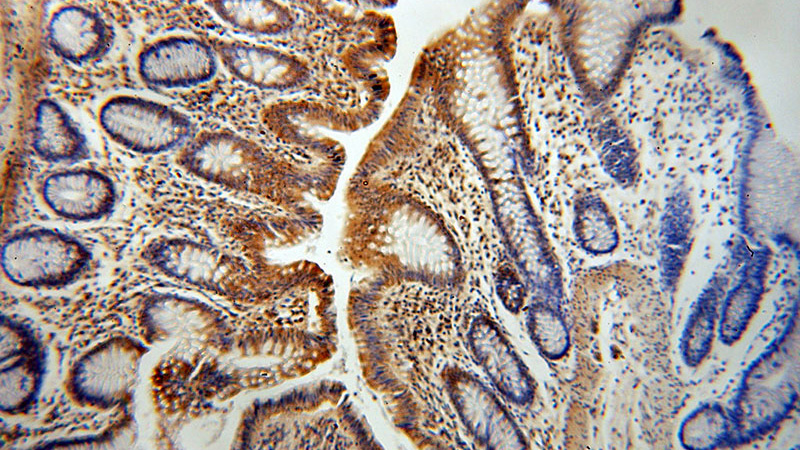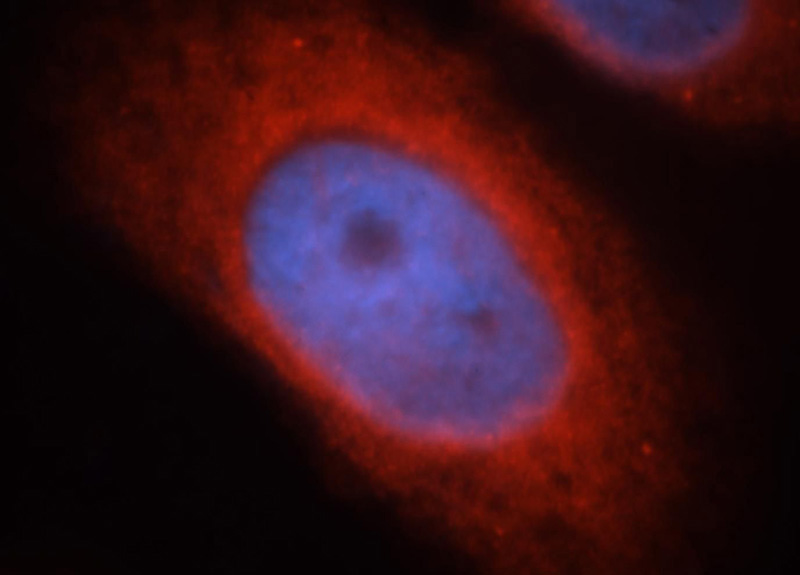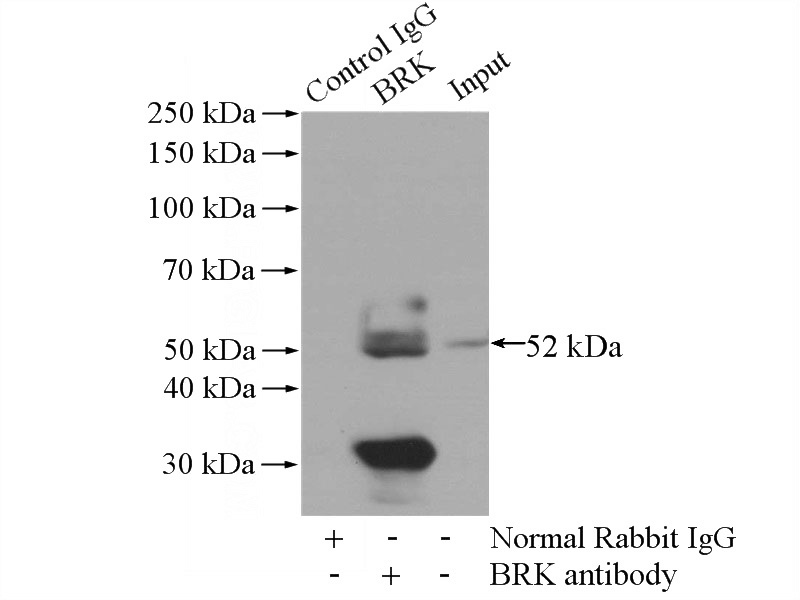-
Product Name
BRK antibody
- Documents
-
Description
BRK Rabbit Polyclonal antibody. Positive IP detected in HeLa cells. Positive WB detected in MCF7 cells, HeLa cells, mouse spleen tissue. Positive IF detected in MCF-7 cells. Positive IHC detected in human colon tissue. Observed molecular weight by Western-blot: 52 kDa
-
Tested applications
ELISA, WB, IHC, IF, IP
-
Species reactivity
Human,Mouse,Rat; other species not tested.
-
Alternative names
Breast tumor kinase antibody; BRK antibody; FLJ42088 antibody; Protein tyrosine kinase 6 antibody; PTK6 antibody; PTK6 protein tyrosine kinase 6 antibody; Tyrosine protein kinase BRK antibody
-
Isotype
Rabbit IgG
-
Preparation
This antibody was obtained by immunization of Peptide (Accession Number: NM_005975). Purification method: Antigen affinity purified.
-
Clonality
Polyclonal
-
Formulation
PBS with 0.02% sodium azide and 50% glycerol pH 7.3.
-
Storage instructions
Store at -20℃. DO NOT ALIQUOT
-
Applications
Recommended Dilution:
WB: 1:500-1:5000
IP: 1:200-1:2000
IHC: 1:20-1:200
IF: 1:10-1:100
-
Validations

MCF7 cells were subjected to SDS PAGE followed by western blot with Catalog No:117238(PTK6 antibody) at dilution of 1:500

Immunohistochemical of paraffin-embedded human colon using Catalog No:117238(PTK6 antibody) at dilution of 1:100 (under 10x lens)

Immunohistochemical of paraffin-embedded human colon using Catalog No:117238(PTK6 antibody) at dilution of 1:100 (under 40x lens)

Immunofluorescent analysis of MCF-7 cells, using PTK6 antibody Catalog No:117238 at 1:25 dilution and Rhodamine-labeled goat anti-rabbit IgG (red). Blue pseudocolor = DAPI (fluorescent DNA dye).

IP Result of anti-PTK6 (IP:Catalog No:117238, 4ug; Detection:Catalog No:117238 1:800) with HeLa cells lysate 3440ug.
-
Background
BRK, also named as PTK6 and FLJ42088, is a cytoplasmic nonreceptor protein kinase which may function as an intracellular signal transducer in epithelial tissues. PTK6 can phosphorylate KHDRBS1, KHDRBS2, KHDRBS3 and STAP2/BKS. Overexpression of PTK6 in mammary epithelial cells leads to sensitization of the cells to epidermal growth factor and results in a partially transformed phenotype. Expression of PTK6 has been detected at low levels in some breast tumors but not in normal breast tissue. Its presence in the nucleus appears to be linked to suppression of tumor progression. This antibody is specific to PTK6.
-
References
- Yu G, Lee YC, Cheng CJ. RSK promotes prostate cancer progression in bone through ING3, CKAP2, and PTK6-mediated cell survival. Molecular cancer research : MCR. 13(2):348-57. 2015.
Related Products / Services
Please note: All products are "FOR RESEARCH USE ONLY AND ARE NOT INTENDED FOR DIAGNOSTIC OR THERAPEUTIC USE"
